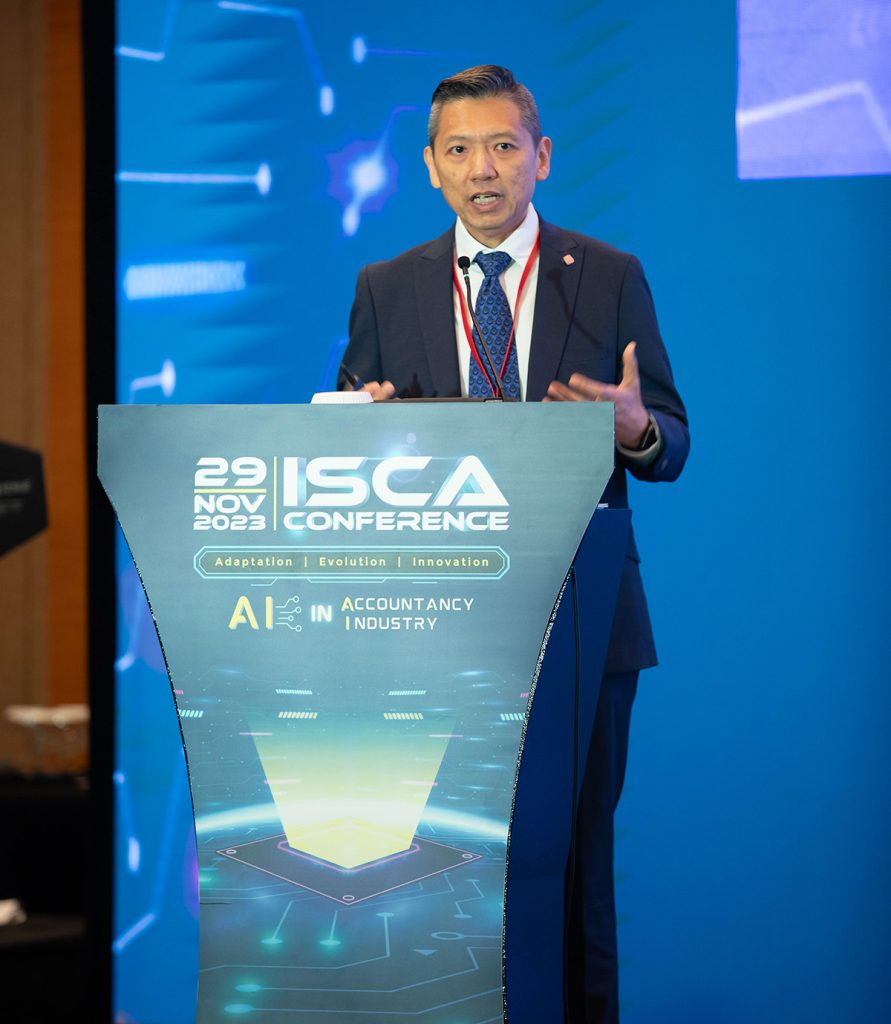
As with many aspects of modern life, technology is a double-edged sword – all the more so when it comes to fraud. The rapid evolution and adoption of technology has accelerated, especially in the past two years, due to remote working practices. As such, fraud has evolved from simple invoice manipulation to many different looks and forms, including doctored photographs and forged documents, all created with easy-to-use software.

So prevalent is fraud that a 2022 report by the Association of Certified Fraud Examiners estimated that organisations around the world lose approximately 5% of their annual revenue through organisational fraud. That no organisation was immune from the threat of organisational fraud was a stark warning from David Chew, Director of the Commercial Affairs Department, Singapore Police Force, when he presented on “Adaptive Fraud Prevention For Organisations”.
Other trends that contribute to fraud risks today include the adoption of digital banking infrastructure, and digital assets such as cryptocurrency. Given the speed at which money is being moved, it is getting harder to catch up with the perpetrators. And, all too quickly, the money would have been moved out of the country too. The increasing complexity of fraud due to collusion and the involvement of intermediaries, such as corporate service providers used to set up shell companies, also increase the scale and scope of fraud.
Even more alarming is the fact that more than half of fraud cases involved insiders, the PriceWaterhouseCoopers Global Economic Crime And Fraud Survey 2022 found. A recent case involved a former senior executive from a statutory board who was responsible for assessing business grant applications. He had conspired with external parties to incorporate shell companies for false applications to receive grant payouts. Within two years, he had submitted over 100 forged documents such as invoices and bank statements. This case shows that fraud committed by insiders is difficult to detect, and highlights the need for regular review of processes and clear whistleblowing policy, among other preventative steps. Mr Chew reminded finance professionals that not only do they need to look for red flags in documents, documents themselves cannot be taken at face value but must be cross-checked with multiple documents to surface anomalies. Metadata of digital documents also need to be closely inspected.
Mr Chew also cited the case of a former finance assistant who had embezzled money from her organisation, a charity institution. She had conducted unauthorised withdrawals from the charity’s bank account amounting to $1.4 million in just three months. The irony was that she was herself a victim of a love scam, and had committed the deeds to help her supposed lover, who claimed that he needed monies to release his parcel which was being detained by the authorities. Her actions could have been detected earlier if regular transaction monitoring had been put in place to detect suspicious payments, or if there had been more probing by the approving signatories to verify the purpose of payments. In this case, complacency could have been a contributing factor as well. Mr Chew sounded the need to inspect supporting documents and verify with others before sign-off, and using notification alerts should withdrawals cross a certain pre-set limit. As digital tools enable transactions to be carried out almost instantaneously, losses too can balloon quickly.
Robotic process automation (RPA) can help in fraud detection by automating the collection and sieving of data. Technology can be leveraged to obtain more data points such as unusual time stamps of accounting entries submitted during weekends or after office hours.
Before wrapping up his presentation, Mr Chew exhorted the attendees to maintain professional scepticism and a questioning mind at all times, to be alert to the possibility of fraud, and to have the moral courage to speak up when one is asked to partake in an illegal act.
In an adjacent presentation on the topic of tax fraud, Lawrence Eng, Director (Investigation 3), Inland Revenue Authority of Singapore (IRAS), shared about missing trader fraud (MTF), a fraudulent scheme used by syndicates to defraud the government. In the scheme, a seller collects Goods and Services Tax (GST) from sales but does not remit the GST to IRAS.

Among the tell-tale signs of an individual or company attempting tax fraud are back-to-back purchase-to-sale arrangements, payment received from the customer before payment is submitted to the supplier, and a pre-determined profit margin. Mr Eng also shared IRAS’ strategy to tackle MTF, which includes the imposition of new conditions for GST schemes and withholding of suspicious tax refunds, as well as closer collaboration between the GST Division and Investigation Division to more effectively detect and apprehend perpetrators.
Rehash the excitement of ISCA Conference 2023 in the video here!